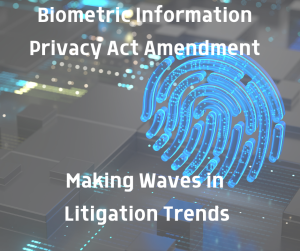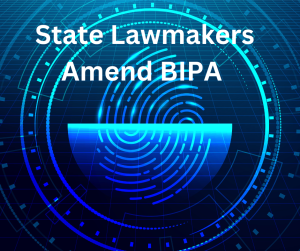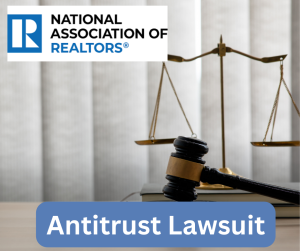Employers who collect fingerprints, face scans, or other biometric information such as retina or iris scans from employees or customers would be well-advised to ask permission and explain their purpose for collecting this data. If they don’t, they could be legally liable.
 That’s in the wake of a relatively liberal interpretation of the Illinois Biometric Information Privacy Act (BIPA), which regulates the handling of biometric data, from the Illinois Supreme Court. The result of the ruling is that state-level lawsuits have greater latitude than those filed in federal court—but even suits dismissed at the federal level can sometimes be refiled in state court. The law remains in flux when it comes to what, exactly, constitutes biometric data. Photographs are not considered biometric identifiers, for example, but a software application that collects facial scans could be—and even federal courts have allowed for relatively broad interpretations on this front, mindful of the galloping pace of technological advances.
That’s in the wake of a relatively liberal interpretation of the Illinois Biometric Information Privacy Act (BIPA), which regulates the handling of biometric data, from the Illinois Supreme Court. The result of the ruling is that state-level lawsuits have greater latitude than those filed in federal court—but even suits dismissed at the federal level can sometimes be refiled in state court. The law remains in flux when it comes to what, exactly, constitutes biometric data. Photographs are not considered biometric identifiers, for example, but a software application that collects facial scans could be—and even federal courts have allowed for relatively broad interpretations on this front, mindful of the galloping pace of technological advances.
The Illinois Supreme Court in January defined an aggrieved person as anyone whose information is collected without their consent or knowledge, even if they were not harmed in the process, in the case Rosenbach v. Six Flags Entertainment Corp. (2019 IL 123186), issued on January 25 of this year and previously detailed on this blog. This means employers are liable for $1,000 in damages for each negligent violations and $5,000 for each intentional violations. For example, if an employer fingerprints employees each day as they check in and out of the office, and does not notify employees of the collection and storage of these fingerprints, the business could be fined $2,000 per day per employee. Perhaps not surprisingly, at least 90 class-action lawsuits alleging violations of BIPA have been filed since January in Illinois state courts.
 Chicago Business Attorney Blog
Chicago Business Attorney Blog









